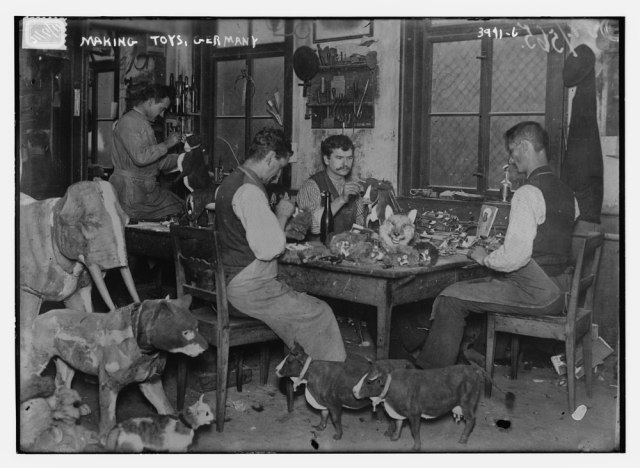The Machine in the Workshop, Part 1 –

In 1938, The Woodworker magazine published a two page “conversation” between a handworker and machinist. It’s interesting and thoughtful. And so we are going to reproduce it here in short segments.
HANDWORKER: I think that one of the saddest aspects of the present age is the awful loss mankind has sustained in the almost entire disappearance of craftwork. Consider for a moment what this means. Take any craft at random – say that of the clockmaker. There are in London at the present time a few middle-aged and elderly men who could if required make a clock throughout by hand. Exactly how many I don’t know, but there cannot be many left who served an apprenticeship in a shop which was free of the machine, for even in the last century was heard the rumble of the distant drum.
When these men have passed on there will not be any man left with either the skill or the knowledge to carry out the countless skilled operations that go to the making of a clock. It will be as a great death. For centuries the trade is passed on, each man adding to it his measure of experience and handing it down to the young men who give as their contribution their zeal and enthusiasm.
Then one day the poisoned barb of the machine strikes it, and within thirty or forty years it lies stricken, a mere shadow of its former greatness.
Well, there is one of my arguments against the machine. It begins in a small way, apparently innocuous; then, one by one the various operations belonging to handwork go until the machine ousts handwork entirely. You cannot introduce one simple machine without running the risk of losing all. For where does one draw the line? Human nature, being what it is, seeks an easy way of doing a job, and, from using a machine to assist in heavy drudgery, it begins to alter the work so that it can be done by the machine, and there is the poison. The character of the work is sacrificed to the machine which makes it.



